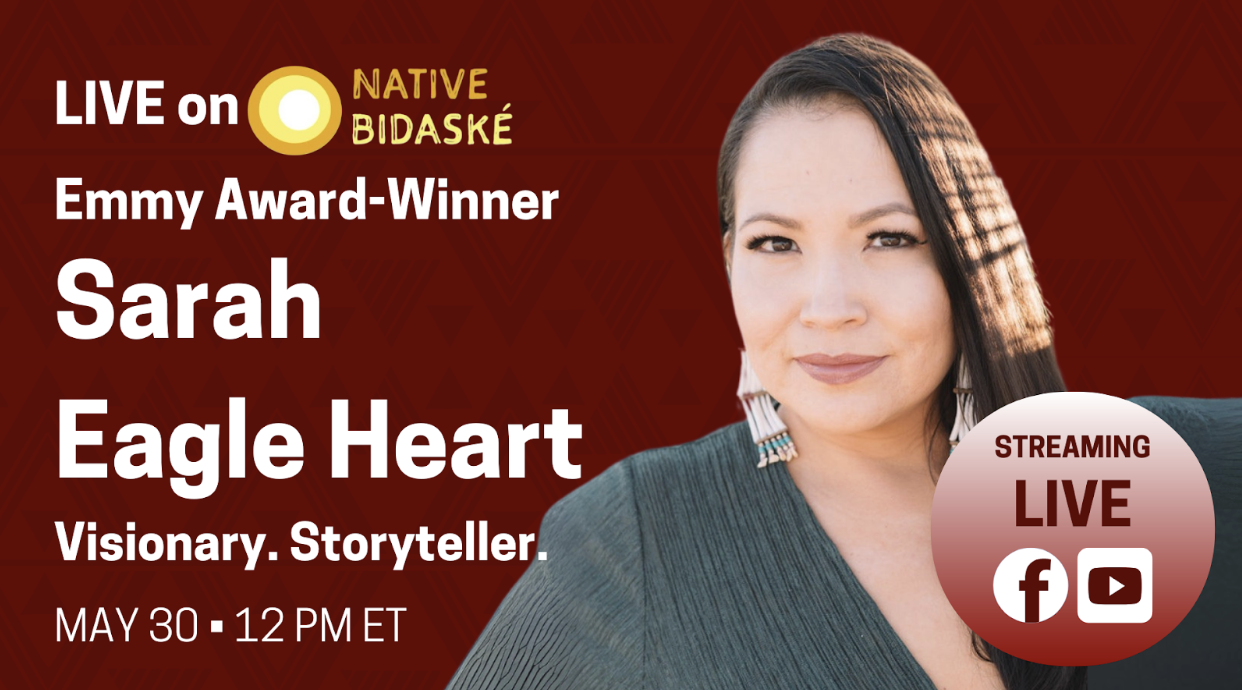
- Details
- By Native StoryLab
In an exciting episode of Native Bidaské airing Friday, May 30th at 12 ET, host Levi Rickert sits down with two-time Emmy Award-winning storyteller Sarah Eagle Heart to discuss her latest project, "Butterflies" - a compelling short sci-fi film that bridges indigenous wisdom, technology, and environmental preservation.
Eagle Heart reveals the film's unique approach to addressing climate change through the eyes of Native youth, showcasing how Artificial Intelligence (AI) and scientific innovation can be powerful tools for environmental solutions. Produced in collaboration with John Legend's production team, “Matter and Space” the film highlights Native children as scientists and problem-solvers.
Join us to hear:
- The potential of AI in indigenous storytelling
- Climate change solutions from a Native perspective
- The importance of indigenous involvement in technological development
- A touching tribute to actor Cole Brings Plenty
The film, available on YouTube, features the Lakota language and a powerful narrative about saving monarch butterflies, demonstrating how traditional knowledge can intersect with cutting-edge technology.
Don't miss this inspiring conversation that explores the future of indigenous storytelling, technology, and environmental activism.
Tune in to Native Bidaské, Friday, May 30th at 12 ET on our Facebook and YouTube channel.
Help us defend tribal sovereignty.
At Native News Online, our mission is rooted in telling the stories that strengthen sovereignty and uplift Indigenous voices — not just at year’s end, but every single day.
Because of your generosity last year, we were able to keep our reporters on the ground in tribal communities, at national gatherings and in the halls of Congress — covering the issues that matter most to Indian Country: sovereignty, culture, education, health and economic opportunity.
That support sustained us through a tough year in 2025. Now, as we look to the year ahead, we need your help right now to ensure warrior journalism remains strong — reporting that defends tribal sovereignty, amplifies Native truth, and holds power accountable.
 The stakes couldn't be higher. Your support keeps Native voices heard, Native stories told and Native sovereignty defended.
The stakes couldn't be higher. Your support keeps Native voices heard, Native stories told and Native sovereignty defended.
Stand with Warrior Journalism today.
Levi Rickert (Potawatomi), Editor & Publisher

